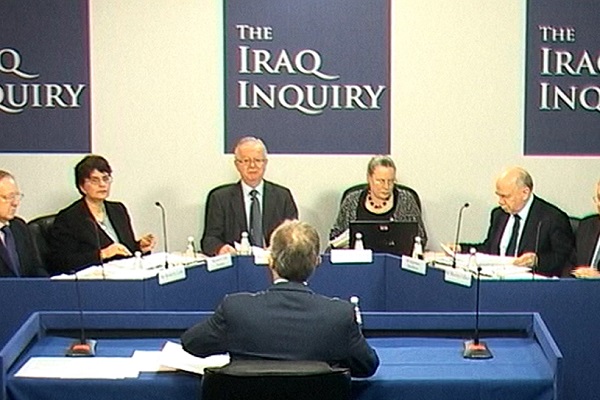
Do inquiries lead us to that better state of the nation or are they just a convenient way for a government to lob a hot potato out of bounds? The reality often lies surprisingly in the minutiae of tribunal procedure.
Sir John Chilcot’s report on Iraq was released last week, promising to cleanse murky and defiled areas of our government, intelligence services, and armed forces that other mechanisms just couldn’t reach. The UK’s culture of public inquiries is something to be revered for investigating truths and exposing failures of a national level of concern. They have been needed to tackle some of the most horrific and widespread criminal behaviour by individuals and agents of the state imaginable. They are often the last hope of justice, and carry enormous political pressures that proceedings in courts are normally rightly insulated from.
Public inquiries have taken different forms over the last few hundred years but in essence they are formed out of a government’s motivation (invariably in response to public pressure) to: establish facts, create accountability, apportion blame and retribution, learn lessons, allow for catharsis, restore public confidence, investigate state obligations and develop policy. The closest overarching framework we have to defining them are contained in the six cardinal principles devised by Lord Justice Salmon in 1966.
The first recorded forms of public inquiries appeared in the mid-17th century and were intensely partisan beasts. Parliament set up Select Committees of Inquiry that were used for example when Samuel Pepys (then Secretary of the Navy) was found guilty of piracy, popery and treachery and committed to the Tower of London. The highly politicised proceedings that condemned him were eventually overturned by the Attorney General who subsequently had him released.
It was only in 1921 that Parliament, having used Commissions of Inquiry under various forms, decided to bring that regime under statute with the Tribunals and Inquiries (Evidence) Act. This provided inquiries with powers of witness summons and to authorise or refuse Counsel to any person appearing before it. Most significantly, there were no provisions governing the procedure to be adopted, the payment of costs, or the making of rules of practice. Those issues remained carte blanche for the government.
Most inquiries under the 1921 Act initially concerned allegations of bribery and corruption of state officials but notable recent examples include the Dunblane shootings, the Abuse of Children in Care (both reported in 1996), the Harold Shipman murders (2005) and the Bloody Sunday killings (2010). There were also numerous inquiries that took place outside of the framework of the 1921 Act, such as the Profumo Inquiry (1966), until the need for full codification of inquiries was overwhelming and the Inquiries Act 2005 was passed. There were no public inquiries that reported between 1982 and 1996. This, of course, broadly correlates with the tenure of Margaret Thatcher and John Major. Take from that what you will.
The government’s role in forming the procedure and budget and defining the lines of inquiry are crucial ways in which a public inquiry can eventually be viewed as genuinely exploratory and revelatory or as a whitewash. These executive puppet-string powers demarcate a public inquiry from the courts who have fixed and firm rules on evidence and procedure and benefit, to a certain extent, from the principle of the separation of powers. Public inquiries lie somewhere in between the executive and judiciary and follow an inquisitorial process rather than our common law adversarial tradition.
Ten years on from the Inquiries Act, and with the number of public inquiries showing no sign of abating (Mid Staffs, Leveson, Hillsborough, Hutton, Baha Mousa, Al Sweady Litvinenko, and more) there is a renewed appetite for reform. Many members of the justice system would prefer that the public inquiry process follows established neutral legal frameworks, not political whim.
The chief criticism is that the minister charged under section 1 to set up an inquiry in a case where “particular events have caused, or are capable of causing, public concern”, or where “there is public concern that particular events may have occurred” has too much power. This includes the ability to appoint and dismiss panel members, to frame the terms of reference, restrict disclosure of documentation or restrict public access to an inquiry and what is published by it.
In 2014, the House of Lords made a number of recommendations for reform, including:
These were rejected by the government.
In the early 21st century, public inquiries have been elevated to an almost constitutional role in ensuring accountability and transparency in the state. Brave individuals have sat on panels, chaired, given evidence, and much more, and frequently in the face of extraordinary media scrutiny.
However, the continued retention of executive powers over public inquiries carry with them the risk of mistakes and poor oversight which in the future could undermine the legitimacy of the inquiry process.
Maybe a little less governmental influence on public inquiries would be a good thing?